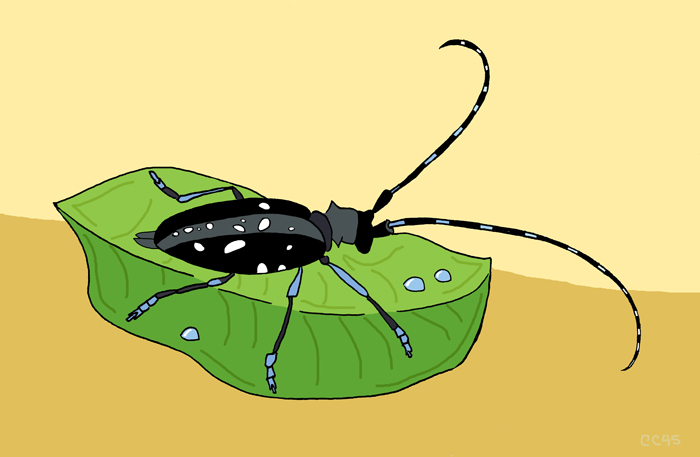Recently, dozens of opinion articles have appeared in the media—and even in scientific journals—that deny the risks that invasive species pose to the environment. These arguments claim that the field of invasion biology is biased and unscientific.
Anthony Ricciardi, professor in McGill’s School of Environment, is addressing this issue.
Invasion can be defined as an organism being displaced to a location in which it has no evolutionary history, and establishing a self-sustaining and reproducing population.
In a recently published paper, Ricciardi looked at 77 articles that promoted invasive species denialism and ignored or denied scientific facts. The study found an exponential increase in the number of these articles published from 1990 to 2015.
According to Ricciardi, science denialism in general is the unfounded dismissal of scientific consensus. Invasive species denialism delegitimizes researchers’ findings and credibility, similar to the denialism that affects climate science and medical science.
“There is a scientific consensus that non-native species introductions pose significant risks […] to biodiversity and ecosystems,” Ricciardi said. “This does not mean that scientists think that every introduced species is going to be disruptive, or even that most may have undesirable impacts.”
While many species do not have strong impacts, some have devastating effects on their surrounding environment, such as the zebra mussel and the Asian longhorned beetle. Further research is needed to improve risk assessment, as invasive species are capable of altering biodiversity, ecosystems, and natural resources, to the point of societal-level impacts.
“A major research objective is to determine which species will have undesired impacts,” Ricciardi said. “When I hear people [non-scientists usually] say, that the impacts of the invasions have been exaggerated, or you can’t trust these scientists because they just want to get more grant money […] it’s just as outrageous as when a climate scientist hears that they’re in some kind of politically-motivated conspiracy.”
Ricciardi highlighted several factors that could contribute to this rise in invasive species denialism, including opposition to increased regulation of the deliberate ‘live trade’ of organisms, for markets such as the food market and the pet industry.
“There’s a massive amount of genetic material moving around the planet […] and there is resistance to regulation because it can impede profits [for businesses],” Ricciardi said.
Another motivation for this denialism is growing distrust in scientific institutions. According to Ricciardi, this is characteristic of the ‘post-truth era’ in which public opinion is more skeptical of authority that challenges people’s world views.
In addition, some professionals feel that they can increase their visibility by being contrarian. A few scholarly journals, including prestigious ones like Nature, publish opinion articles that don’t necessarily include data. Ricciardi also cited denialist books like Where Do Camels Belong? and The New Wild.
Perhaps the most prominent motivation for this rise in invasive species denialism is the existence of conflicting perceptions of nature. Denialists’ contrarianism is not scientific, but rather rhetorical. Denialists range from fisheries stakeholders to philosophers to animal rights activists. While these critics focus on individuals, they fail to recognize the importance of species. Some have even gone as far as saying that invasive species ecologists are xenophobic.
Ricciardi stressed that there is plenty of scientific debate in ecology—but genuine scientific debate involves facts and evidence.
“I am certainly not advocating that we invoke the term 'denialism' to ban arguments,” Ricciardi noted. “But scientific criticisms should be made in a scientific forum where they are evaluated through peer review. [Contrarians] have to be challenged when they say things that are not scientific, or which have no scientific basis, or [when] they misinterpret scientific evidence.”
In a recent editorial, Maclean’s claimed that “Canada should embrace invasive species,” but the article included no scientific evidence. For Ricciardi, this is a prime example of the growing number of newspaper articles that attack science, but don’t have to go through the same scrutiny that the peer review process provides scientific papers before they get published.
Denialism instills doubt that impedes management efforts to prevent new invasions, or control harmful, existing ones.
"Just like climate scientists have begun to speak out publically against climate-change denialism, ecologists must do the same when their science is under attack in the popular press,” Ricciardi said.
With invasive species denialism on the rise, Ricciardi says that invasion biologists must convey their findings better to the general public. Otherwise, the failure to do so would mean less effective management of invasive species, which is increasingly relevant in areas such as biosecurity, conservation, and ecosystem management.






